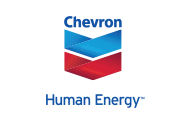Dr. Huma Abbasi, General Manager, Global Health and Medical, Chevron Corporation
Chevron joined the global AIDS response more than 30 years ago, in 1986. Then and now, some of our largest operations were in areas where the AIDS crisis had taken a significant toll. The impact was personal for our employees and their communities, and it demanded a response. It still does.
Our first step was to promote HIV/AIDS education in the workplace, which we did alongside 13 other companies in the San Francisco Bay Area. Later we became the first oil and gas company to adopt a global policy addressing HIV/AIDS for employees. And this was just the start. Our HIV/AIDS commitment is ongoing and ever-evolving—spanning many countries and partnerships—but at its core, it remains rooted in our workforce.
Beginning in the workplace
Of those living with HIV today, roughly half have access to treatment.[1] Fear and stigma further compound the problem, as many HIV-positive people choose to forego testing and are completely unaware of their status.
Correcting this and eliminating stigma requires a culture shift, which can start in the workplace. Global companies like Chevron have power to make a difference in this space.
Chevron’s global workplace response to HIV/AIDS is tailored to different regions. But universally, we encourage a culture of education—focusing heavily on ending stigma, promoting confidential counseling and testing, and providing comprehensive treatment support and medical care for employees and their dependents.
In regions with more pronounced HIV/AIDS needs, we’ve further customized our approach to employee health care. More than one-quarter of the world’s cases of mother-to-child transmission of HIV occur in Nigeria and Angola—where many of our employees and operations are based. To address these specific needs, we implemented voluntary employee programs in both countries aimed at promoting healthy pregnancies, early HIV testing, and the prevention of mother-to-child transmission of HIV. It’s working. We are proud to report we have received no reports of mother-to-child transmission among employees or qualified dependents since 2005 in Angola, and since 2001 in Nigeria.
Another workforce initiative that has delivered significant progress for Chevron is our Peer Health Educator Program. In Indonesia, the United Kingdom, Nigeria, Angola and the Philippines, peer health educators provide counseling on HIV/AIDS as well as other disease prevention and healthy living topics.
Health is personal, so to effectively counsel on health requires trust and mutual respect. It cannot feel “corporate.” Our peer health educators work with local colleagues. Many are from the same regions and communities and share similar life experiences with those they counsel. They are trained to address health holistically and confidentially, as advocates for their coworkers—getting to know them and their unique health challenges, informing them of the resources available through Chevron, and establishing constructive accountability to ensure, in relevant cases, that AIDS testing and treatment are prioritized. This person-centered approach underscores each of our workforce health care efforts and our global health partnerships.
Similar principles guide workforce initiatives and partnerships
Like successful workforce health initiatives, successful partnerships in the global health space work best when they are derived from shared goals, are evidence-based, and are customized to meet local needs. Such collaboration erases silos and builds bridges to progress.
One-size-fits-all approaches do not work in global workforce responses to HIV/AIDS, nor do they work in partner relationships. Approaches must be personalized to deliver meaningful results for specific communities and regions.
Partners like Pact, The Global Fund, Texas Children’s Hospital and the Baylor International Pediatric AIDS Initiative, North Star Alliance, Desmond Tutu Foundation, Wits Health Consortium (IMAGE Project), PEPFAR, Pangaea Global Health, mothers2mothers and GBCHealth share this vision and have worked alongside Chevron on programs and strategies that are bringing us closer to the global eradication of AIDS.
Looking forward to AIDS 2018
Multinational companies have a responsibility to their employees and the communities in which they operate to contribute to ending HIV/AIDS. Through workplace-focused initiatives and strategic partnerships, global industry networks and infrastructure can help overcome barriers and advance progress, treatment, and education in the fight against AIDS.
We look forward to continuing the dialog with other like-minded organizations at AIDS 2018. With all we have accomplished together, we are so close to changing history. AIDS is preventable and treatable. And through our shared commitments, working internally to serve our workforces and externally through partnerships, we can bring life-saving treatment and education to the people who still need it. Eradicating AIDS is within reach.
Dr. Huma Abbasi is general manager of Global Health and Medical for Chevron Corporation. She also serves as Chevron’s global health champion. In these positions, she oversees the design and implementation of programs and services to meet the health and medical needs of the company’s more than 50,000 employees.
Chevron is an official sponsor of AIDS 2018.

1. http://www.unaids.org/sites/default/files/media_asset/UNAIDS_FactSheet_en.pdf